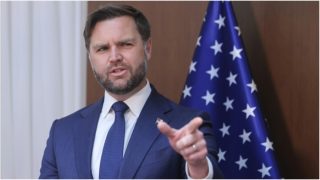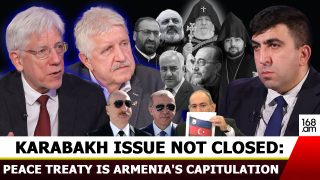
Which Issues are Faced by Armenia after Warsaw NATO Summit?
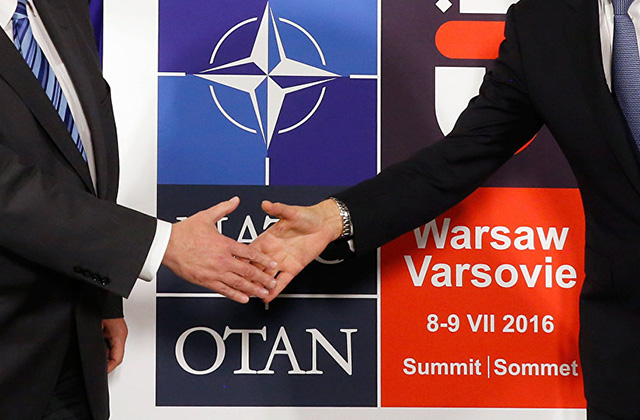
NATO Warsaw Summit, which promised breakthrough resolutions to the world, was launched yesterday. World’s political elite has gathered in the capital of Poland—leaders of NATO member countries, including Barak Obama, president of the USA. Besides heads of NATO member countries, leaders of the countries cooperating with the alliance brought their participation as well, including presidents of Armenia and Azerbaijan. Yesterday Serzh Sargsyan, RA president, also left for Warsaw to participate in the meeting of heads of the governments of NATO member and non-member countries on Resolute Support Mission in Afghanistan; bilateral meetings will also take place in Warsaw.
Witold Waszczykowski, Polish FM, hosting the Summit these days published a benchmark article in French “Le Monde,” claiming that Warsaw NATO Summit should show the power and unity of the treaty to the world. This, in his words, also refers to the countries, which tend to have positive attitude towards Russian provocations. “The venue is rather symbolic, as Poland has passed all the way of the Soviet regime and tasted its bitterness. At the same time the participants will be able to communicate with the heritage of Lech Kaczyński, who saved Tbilisi from Russian air attack in 2008,” the diplomat stated.
He also stressed that in 1999 Poland, in fact, took a crucial step in history and joined to the most productive alliance, which currently exists in the world. Polish FM reflected both to security policy of the alliance, existent challenges and issues, but also highlighted Russian provocations. “NATO will build relations with Russia based on power and dialogue balance,” Jens Stoltenberg, Secretary General of NATO, has repeatedly stated throughout these months, also adding that NATO considers necessary to keep open the ways of political dialogue with Russia. In his words, NATO strives to establish more constructive relations with Russia. “Thus, in this period of high tension we believe in the possibility for a dialogue,” he added. Such policy of NATO and the USA to restrain Russia in Moscow is called aggressive and violates the power balance in Europe.
In relations with Russia the EU and NATO lead by the same principle—dialogue and restraint activities by showing power. Jean-Claude Juncker, President of the European Commission, stated this at the beginning of the Summit, reminding the EU new global policy introduced by Federica Mogherini, Vice-President of the Commission, weeks ago, which also supposed power and dialogue in relations with Russia. It’s not finally clear yet how these statements will be materialized. It’s known that Jens Stoltenberg stated that NATO calls on all the sides of NK conflict to decrease tension and refrain from exertion of violence.
“I anticipate, that in our communiqué we’ll mention NK conflict as well.
In our message we call on the sides to reduce tension, refrain from violence and seek for peaceful resolution, based on negotiations. We support all the steps directed to the peaceful settlement of the conflict,” Stoltenberg told reporters prior to the Summit.
Participation of RA president in the Summit gives ground to suppose that in the concluding declaration of the Summit the part covering NK conflict won’t be anti-Armenian. During the Warsaw Summit the Georgian side anticipates results from the South Caucasus countries, which hopes to obtain a NATO membership road map.
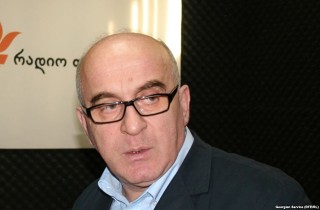 Irakli Menagarishvili, head of Center for Strategic Research (Georgia), former Georgian Foreign Minister, confirmed these expectations of Georgia’s authorities. However, he also stated, that he doesn’t hope that Georgia will obtain a road map during this Summit.
Irakli Menagarishvili, head of Center for Strategic Research (Georgia), former Georgian Foreign Minister, confirmed these expectations of Georgia’s authorities. However, he also stated, that he doesn’t hope that Georgia will obtain a road map during this Summit.
In his conviction, Georgia-NATO cooperation with record a rise, like during all former summits. “Georgia may feel itself completely safe only within NATO, Georgia has been ready to involve in NATO long ago, however, Russian factor doesn’t allow NATO to boldly take that step. I think it’ll depend on Russia’s further policy how intensively that process will be moved forward. Up to now this issue is considered as conceding, as NATO hopes to settle its ties with Russia through a dialogue, and Russia states that it can’t allow Georgia’s membership to NATO, which proves, that Georgia’s Russian threat hasn’t been neutralized yet,” former FM said.
In his conviction, the agreement not to be concluded with NATO was compensated with the memorandum on deepening cooperation in the fields of established security and defense confirmed during the visit of John Kerry, U.S. Secretary of State. He considers this is an essential event on account of the role of the USA for NATO.
“This showed that the West, in particular, the USA, doesn’t miss the possibility to deepen relations with Georgia, as it realizes that postponing of NATO membership road map may raise concerns in Tbilisi, and attempts to settle that issue bilaterally, if some NATO member countries avoid making Russia ‘nervous’,” Menagarishvili said. In his conviction, during this NATO summit a bit tougher resolutions will be adopted, than in the previous one. “However, some NATO member countries avoid manifestation of power, avoid worsening of relations with Russia, thus, I consider, Russia won’t be surprised from the Summit results,” he said. In his conviction, in case of being surprised, it should take the steps promised by it, during which Armenia should be sober and attentive. “I think Armenia’s authorities will appreciate seriousness of the moment, as they always do,” Georgian diplomat hinted.
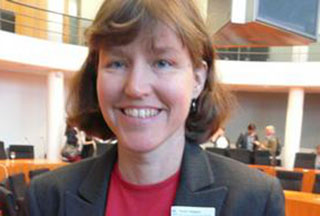 Susan Stewart, German analyst, told “168 Hours” that NATO will be cautious, and for that very reason it was declared on the necessity of the dialogue with Russia. In her words, Western organizations strive to possibly settle the emerged issues through political-diplomatic ways. “That why they attempt to refrain from resolution, which will instigate Russia, considering that in some NATO member countries change of defensive systems—expansion, recruitment with new forces, will already become a certain message for Russia. The latter has repeatedly expressed on membership of Georgia and Ukraine to NATO, and making decision in this direction will mean to go to direct confrontation with Russia, when it’s being stated on the necessity of the dialogue,” Stewart noticed. In her words, these two states which have chosen the direction of Euro-Atlantic integration, in the end, will get membership, the alliance simply attempts to realize it more safely, during that helping those countries as much as possible, provide their security through cooperation with other countries.
Susan Stewart, German analyst, told “168 Hours” that NATO will be cautious, and for that very reason it was declared on the necessity of the dialogue with Russia. In her words, Western organizations strive to possibly settle the emerged issues through political-diplomatic ways. “That why they attempt to refrain from resolution, which will instigate Russia, considering that in some NATO member countries change of defensive systems—expansion, recruitment with new forces, will already become a certain message for Russia. The latter has repeatedly expressed on membership of Georgia and Ukraine to NATO, and making decision in this direction will mean to go to direct confrontation with Russia, when it’s being stated on the necessity of the dialogue,” Stewart noticed. In her words, these two states which have chosen the direction of Euro-Atlantic integration, in the end, will get membership, the alliance simply attempts to realize it more safely, during that helping those countries as much as possible, provide their security through cooperation with other countries.
As for the whole South Caucasus and NK conflict, Stewart stated that in relations with Armenia NATO attempts to assist to the reforms in the defense system, in reply to the support of Armenia’s peacekeeping mission, which NATO has always highly assessed. “However, in NATO-Armenia relations, due to membership to CSTO, thus, the sides don’t express ambitions for more,” Stewart said. According to her, NATO won’t change its disposition regarding NK conflict and will appear with unexpected statements. “NATO assists to peaceful efforts, and as an official organization, it can’t interfere with the conflict,” she concluded.
By Araks Martirosyan





